"Cherishing Little Steps - A Haven for Baby and Family Journeys"
Skincare Myths Debunked: What Works
You might be surprised to learn that some of the skincare beliefs you've held onto for years may not be as effective as you think. From the misconception that pricey products are always better to the idea that natural is always superior, there are numerous myths worth debunking. By exploring what truly works in skincare, you can unlock the secrets to achieving healthy, glowing skin without falling for common misconceptions.
Key Takeaways
- Expensive products don't guarantee better results; formulation matters most.
- Both natural and synthetic skincare have benefits for different skin needs.
- Quality over quantity in skincare routines enhances effectiveness.
- Sunscreen is vital indoors to prevent UV damage through windows.
- Tailored skincare approaches are crucial for individual skin types.
Pricey Products Guarantee Results
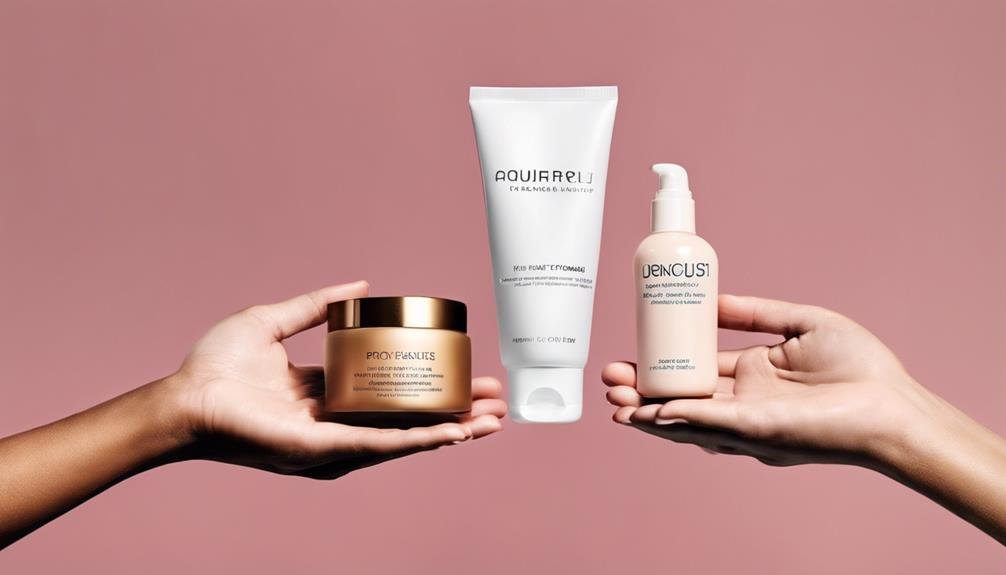
When it comes to skincare, there's a common misconception that expensive products always deliver superior results. However, price doesn't always equate to effectiveness in skincare. The key lies in the formulation of the product and how well it addresses your specific skin concerns. Many affordable skincare brands offer products with high-quality ingredients that can deliver excellent results.
In fact, some expensive products may contain fillers or fragrances that can irritate sensitive skin.
Research shows that active ingredients like retinol, vitamin C, hyaluronic acid, and niacinamide are crucial for addressing various skin issues such as fine lines, hyperpigmentation, and dullness. These ingredients can be found in both high-end and budget-friendly products.
It's essential to read the ingredient list and choose products based on what your skin needs rather than solely focusing on the price tag.
Natural Always Means Better
Many people have come to believe that natural skincare products are inherently superior to their synthetic counterparts. While it is true that natural ingredients can offer benefits, it is essential to recognize that not all natural products are automatically better for your skin. In fact, synthetic ingredients can sometimes be more effective in addressing specific skincare concerns. Here is a balanced view to help you make informed decisions:
| Natural Skincare Products | Synthetic Skincare Products |
|---|---|
| Can be gentle on sensitive skin | May offer targeted solutions |
| Often have fewer preservatives | Can provide more stable formulations |
| Rich in antioxidants and vitamins | May have higher concentrations of active ingredients |
| Environmentally friendly | Controlled quality and consistency |
More Products, Better Results
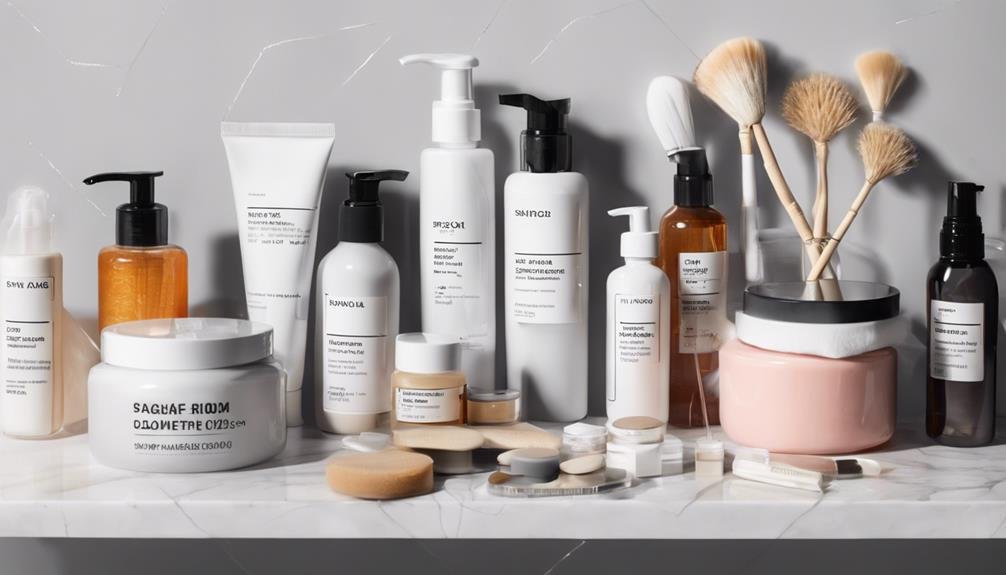
To achieve optimal skincare results, there's a common misconception that using more products will lead to better outcomes. However, the truth is that bombarding your skin with numerous products can actually do more harm than good. Layering multiple products excessively can overwhelm your skin, leading to irritation, breakouts, and even damage to the skin barrier.
When it comes to skincare, quality over quantity is key. Instead of piling on numerous products, focus on using a select few that target your specific skin concerns effectively. Look for products with evidence-based ingredients that are suitable for your skin type.
Incorporating a gentle cleanser, a hydrating moisturizer, and a broad-spectrum sunscreen into your routine can often be sufficient to achieve healthy and glowing skin.
SPF in Makeup Is Enough
Layering makeup products that contain SPF may seem like a convenient way to protect your skin from the sun's harmful rays, but relying solely on SPF in makeup isn't enough to shield your skin adequately. While makeup with SPF can provide some level of sun protection, dermatologists recommend using a dedicated broad-spectrum sunscreen as your primary defense against UV damage.
SPF in makeup is often diluted and not applied in the recommended amount to achieve the stated level of protection. Moreover, makeup tends to wear off throughout the day, leaving your skin vulnerable to sun exposure. By using a separate sunscreen underneath your makeup, you ensure that your skin is adequately protected throughout the day.
Oily Skin Doesn't Need Moisturizer
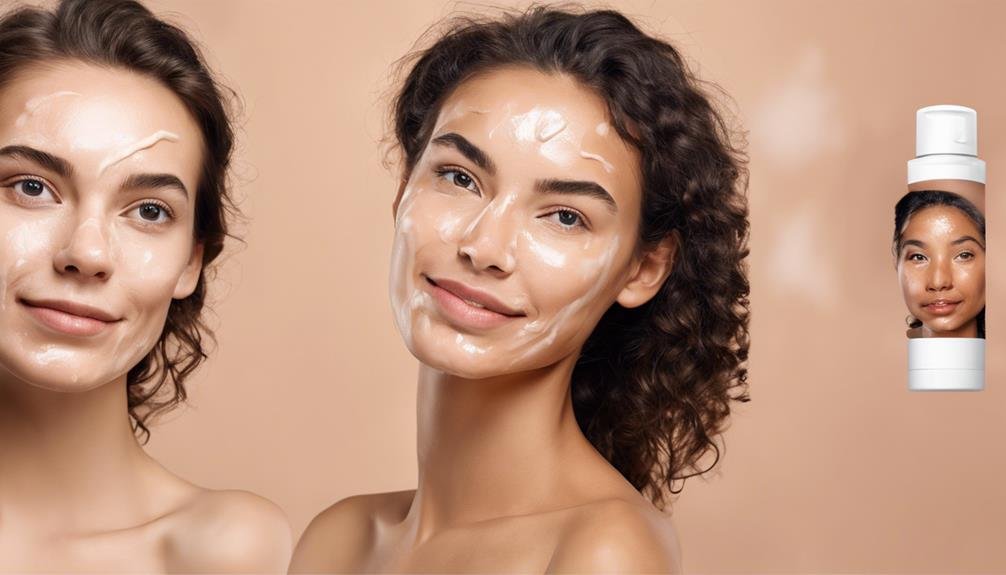
Some individuals with oily skin may believe that moisturizer is unnecessary due to their skin's natural oil production. However, this is a common misconception. Even oily skin needs hydration to maintain a healthy moisture balance.
When you skip moisturizer, your skin may overcompensate by producing even more oil, leading to a greasier complexion. Look for oil-free or non-comedogenic moisturizers specifically designed for oily skin. These products can provide lightweight hydration without clogging pores or exacerbating oiliness.
Ingredients like hyaluronic acid and glycerin are great choices for oily skin as they hydrate effectively without adding excess oil. By incorporating a moisturizer into your skincare routine, you can help regulate oil production, prevent dehydration, and improve the overall health of your skin.
Exfoliate Daily for Smooth Skin
Many individuals strive for smooth, radiant skin, and exfoliation is often touted as a key step in achieving this goal. While exfoliating can indeed help in improving skin texture by removing dead skin cells, it's essential to approach this process with caution.
Contrary to the belief that daily exfoliation leads to smoother skin, excessive exfoliation can actually damage the skin barrier and cause irritation. The outer layer of our skin acts as a protective barrier, and over-exfoliating can disrupt this barrier, leading to redness, sensitivity, and even breakouts.
Experts recommend exfoliating 2-3 times a week for most skin types. If you have sensitive skin, you may need to exfoliate less frequently to prevent irritation. It's also crucial to choose the right exfoliant for your skin type, whether it's a gentle physical exfoliant or a chemical exfoliant like AHAs or BHAs. Remember, moderation is key when it comes to exfoliation for smooth and healthy skin.
DIY Skincare Is Always Safe
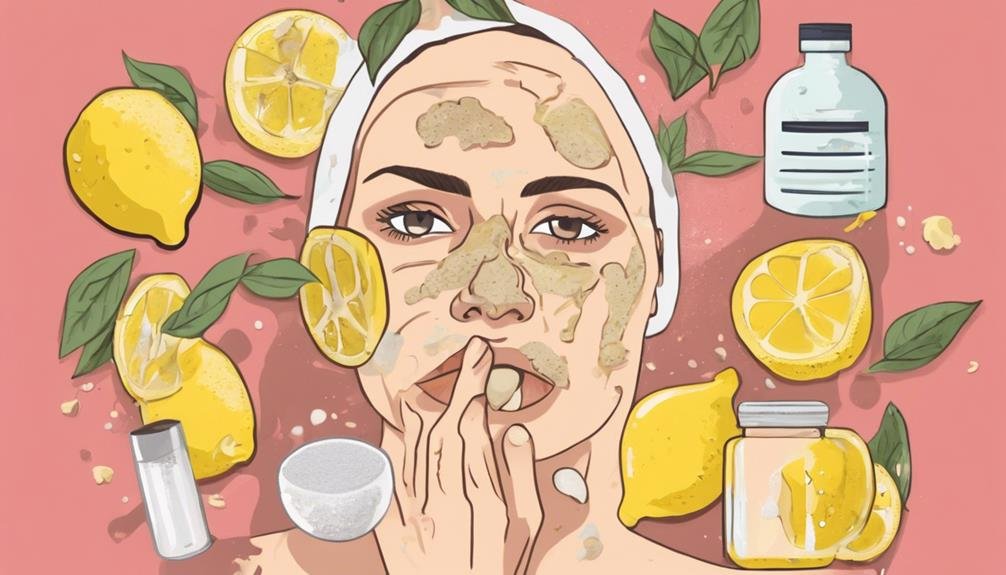
When it comes to skincare, the notion of creating your own products at home can be enticing. DIY skincare has gained popularity due to the allure of natural ingredients and the ability to customize products to fit your skin's needs. However, it's essential to approach DIY skincare with caution. While some homemade remedies can be effective, not all DIY recipes are safe for your skin.
One common misconception is that natural ingredients are always gentle and suitable for all skin types. In reality, certain natural ingredients can cause irritation, allergic reactions, or even damage your skin barrier. Additionally, DIY skincare lacks the rigorous testing and quality control that commercial products undergo to ensure safety and efficacy.
Before trying any DIY skincare recipes, research the ingredients thoroughly and consider factors like skin type, allergies, and sensitivities. It's also wise to consult with a dermatologist to avoid potential harm to your skin.
While DIY skincare can be fun and cost-effective, safety should always be the top priority for healthy and radiant skin.
Acne Means Dirty Skin
Contrary to popular belief, acne isn't solely caused by having dirty skin. While keeping your skin clean is important, acne is primarily the result of a combination of factors such as excess oil production, clogged pores, inflammation, and bacteria. Dirt and surface impurities can contribute to clogged pores, but they aren't the root cause of acne.
Excessive scrubbing or harsh cleansing to rid your skin of dirt can actually worsen acne by irritating the skin and stripping away its natural oils, leading to increased oil production as the skin tries to compensate. Instead, opt for gentle cleansing and non-comedogenic products to maintain a healthy skin barrier without exacerbating acne.
It's vital to address acne at its source, which often involves a multifaceted approach including proper skincare, a balanced diet, managing stress levels, and possibly seeking professional guidance from a dermatologist.
Aging Can't Be Reversed
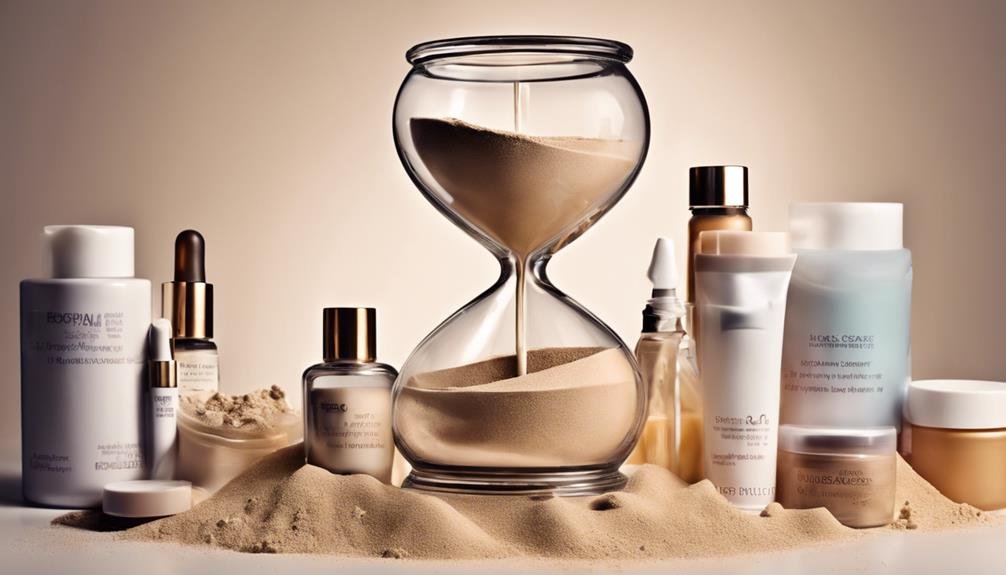
You've learned that acne isn't just about dirty skin, but did you know that the belief that aging can't be reversed is also a common misconception? While aging is a natural process that affects everyone, advancements in skincare and dermatology have shown that there are ways to slow down and even reverse some of the visible signs of aging.
One key factor in aging is collagen production. Collagen, a protein that provides structure to your skin, decreases as you age, leading to wrinkles and sagging. However, using products with ingredients like retinoids, peptides, and antioxidants can help stimulate collagen production and improve the appearance of fine lines and wrinkles.
Additionally, protecting your skin from the sun is crucial in preventing premature aging. UV rays can accelerate the aging process, causing sunspots, wrinkles, and leathery skin. By using sunscreen daily and wearing protective clothing, you can minimize the effects of sun damage and maintain a more youthful appearance.
Skincare Is One-Size-Fits-All
Many individuals believe that skincare is a one-size-fits-all solution, assuming that what works for one person will work for everyone. However, this is a common misconception in the world of skincare. Each person's skin is unique, influenced by factors such as genetics, environment, lifestyle, and age. What works for one person may not necessarily work for another.
Skin conditions vary widely, from oily and acne-prone to dry and sensitive. These differences require tailored approaches to skincare.
For example, someone with oily skin may benefit from products containing salicylic acid to manage excess oil production, while someone with dry skin may require richer moisturizers to hydrate and nourish the skin.
To determine the best skincare routine for you, consider consulting a dermatologist or skincare professional. They can assess your skin type, recommend suitable products, and provide personalized advice based on your specific needs. Remember, skincare isn't one-size-fits-all; it's about finding what works best for your unique skin.
Products Can Shrink Pores
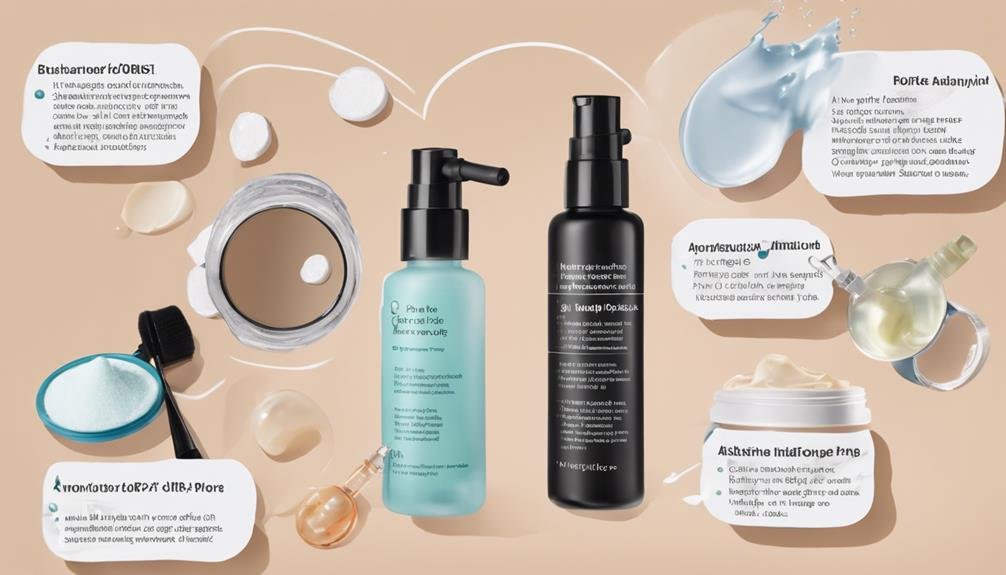
Despite the common belief that certain products can shrink pores, it's important to understand the limitations of this claim. Pores don't have muscles around their openings that allow them to expand or contract. While products like toners or serums may temporarily make pores appear smaller by removing debris and excess oil, they can't physically change the size of pores.
However, ingredients like salicylic acid or retinoids can help keep pores clear and prevent them from becoming enlarged due to clogs.
To maintain the appearance of smaller pores, focus on a consistent skincare routine that includes gentle cleansing, exfoliation, and moisturizing. Additionally, using sunscreen daily can prevent sun damage that may lead to enlarged pores. Remember that genetics and age play significant roles in pore size, so realistic expectations are key.
Rather than solely aiming to shrink pores, prioritize healthy skin habits that support overall skin health and appearance.
Sunscreen Is Only Needed Outdoors
While it may be tempting to skip sunscreen on days when you're indoors, the reality is that sun protection is a crucial aspect of skincare regardless of your location. Harmful UV rays can penetrate windows, leading to premature aging, hyperpigmentation, and skin cancer. Even incidental sun exposure adds up over time, contributing to skin damage.
Studies show that UV radiation can still reach your skin indoors, especially if you spend a lot of time near windows or under artificial lighting.
Daily sunscreen use, even when you're inside, is essential for maintaining healthy and youthful skin. Opt for a broad-spectrum sunscreen with an SPF of at least 30, applying it generously to all exposed skin. Remember to reapply every two hours, especially if you're near windows or under bright indoor lighting.
Frequently Asked Questions
Can Eating Certain Foods Really Improve My Skin?
Eating certain foods can improve your skin. Foods rich in antioxidants, vitamins, and healthy fats can benefit skin health. Incorporating a balanced diet with plenty of fruits, vegetables, and water can contribute to a clearer complexion and radiant skin.
Is It Safe to Mix Different Skincare Brands/Products?
Mixing skincare brands/products can be safe if done mindfully. Start with patch testing to ensure compatibility. Look for ingredients that complement each other. Pay attention to reactions. Personalize your routine for the best results.
Does Drinking More Water Really Help With Skin Hydration?
Drinking more water can improve skin hydration by replenishing moisture levels from within. Hydration is key for healthy skin, as water helps maintain elasticity and plumpness. Remember, it's not a cure-all, but it's a beneficial step.
Can Stress Actually Affect My Skin's Condition?
Yes, stress can negatively impact your skin. Hormones released during stress can increase oil production, leading to breakouts. Stress can also impair the skin's barrier function, causing dehydration and sensitivity. Managing stress is crucial for skin health.
How Often Should I Replace My Makeup Brushes/Sponges?
You should replace your makeup brushes and sponges every 3-6 months to avoid bacteria buildup and skin irritation. While it may seem costly, investing in new tools regularly is essential for maintaining healthy skin.
Conclusion
In conclusion, debunking skincare myths is essential for achieving optimal results. Remember, expensive products don't always guarantee effectiveness, natural isn't always better, and less is often more when it comes to skincare. Don't be fooled by common misconceptions – prioritize evidence-based ingredients and tailored routines to achieve healthy, radiant skin. As the saying goes, "Don't judge a skincare product by its price tag."

